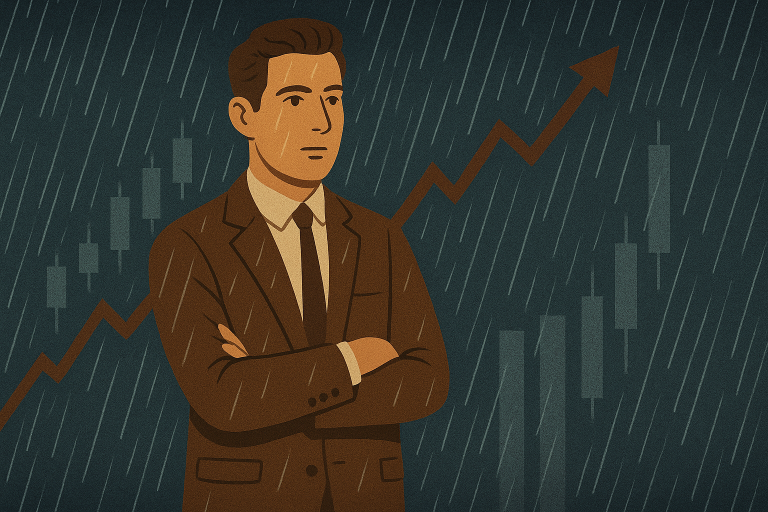The Silent Portfolio Killer: How Guilt Destroys Investment Success
A quiet enemy rarely discussed lurks within every investor’s psyche—unseen on charts, absent from news reports, unrelated to interest rates. This adversary is guilt, systematically dismantling long-term investors even with perfectly structured strategies.
The Insidious Nature of Investment Guilt
Guilt emerges subtly. You purchase assets that decline—instead of accepting this as market reality, you self-flagellate: “Why did I invest? I made stupid mistakes. I failed myself and my family.” Each red candle transforms into personal failure reminders. Holding positions becomes unbearable—not because assets lack quality, but because guilt overwhelms factual analysis.
Profit Guilt: When Winning Feels Like Losing
Guilt manifests even during gains. Assets appreciate, yet you sold prematurely. Watching continued growth triggers self-torment: “I should have held longer. I missed opportunities.” Instead of profit celebration comes self-punishment. To silence this discomfort, you enter new trades without strategy, attempting “recovery.” Where success should be secured, you convert profits into losses.
The Comparison Trap
Guilt thrives on comparisons. Observing others achieving multiples, timing bottoms perfectly, or selling at peaks makes you feel “inferior.” Rather than focusing on your journey, internal pain prompts excessive activity: selling, buying, jumping between positions, attempting to prove personal capability. Reality reveals this as capital destruction, not recovery.
Common Guilt Triggers in Investing
- Entry timing guilt: “I bought at the top”
- Exit timing guilt: “I sold too early”
- Opportunity cost guilt: “I missed that opportunity”
- Performance guilt: “Others are doing better”
Separating Facts From Emotional Fiction
Crucially understand: guilt bears no relationship to investing reality. It originates not from facts but from expectations and illusions. Markets remain unaware whether you bought highs or sold early. Markets maintain neutrality. You alone create guilty feelings—and this self-inflicted punishment destroys results.
The Freedom of Guilt-Free Investing
Long-term investors triumph when releasing guilt attachments. They recognize drawdowns as cycle components, missed profits as journey elements, and mistakes as education essentials. No need exists for self-punishment over imperfect market timing—nobody achieves perfection. Millionaires prosper not through flawless decisions but through persevering without self-recrimination.
Breaking the Guilt Cycle
Remember: guilt represents shackles forcing impulsive actions. It steals energy, attention, and capital. It transforms rational investors into emotional gamblers. While harboring guilt, you’ll remain victimized by your own decisions. Genuine growth begins where you escape this internal prison. Made errors? Accept, learn, advance. Missed chances? Document lessons and await next cycles. Invested poorly? This isn’t conclusion but resilience training.
Long-term investing demands clear minds more than perfect trades. Eliminating guilt creates freedom—freedom to wait, to hold, to ultimately succeed. Strategy should govern your money—not guilt. Your character should determine your future—not your past. Here authentic long-term investors become tempered: not where they predicted peaks, but where they conquered themselves. The most valuable investment skill isn’t market timing—it’s mastering your internal landscape to prevent emotions from sabotaging carefully constructed financial plans.



